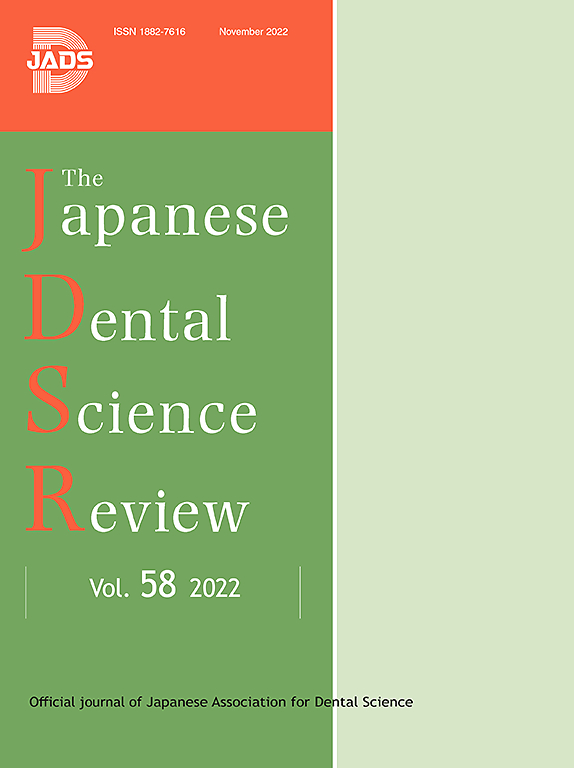Tribological aspects of enamel wear caused by zirconia and lithium disilicate: A meta-narrative review
IF 5.7
2区 医学
Q1 DENTISTRY, ORAL SURGERY & MEDICINE
引用次数: 0
Abstract
The contact between enamel and an antagonist surface is the primary factor in tooth wear. Loss of tooth structure can cause changes in occlusion, chewing functionality, dental sensitivity, and appearance. However, enamel wear caused by opposing restorations is multifactorial and there is a lack of consensus regarding its behavior. This meta-narrative review assesses the multiple factors that affect enamel wear when using two common indirect restorative materials, lithium disilicate and zirconia. PubMed, Google Scholar, MEDLINE, and CINAHL databases were searched using keywords “zirconia,” “lithium disilicate,” “antagonistic tooth wear,” and “enamel wear” to identify studies related to enamel wear caused by zirconia and lithium disilicate restorations. The Realist and Meta-narrative Evidence Syntheses: Evolving Standards (RAMESES) publication standard was used to report this meta-narrative literature review. Four broad categories of influencing factors were identified and reviewed: (1) mechanical and physical properties, (2) wear behavior and microstructural characteristics, (3) surface state, and (4) environmental factors. We conclude that well-polished zirconia is a more favorable indirect restorative material than lithium disilicate in terms of tribology because of its microstructure and surface integrity during wear. This review will enable clinicians to better comprehend the intricate nature of tooth wear caused by dental restorations.
氧化锆和二硅酸锂引起牙釉质磨损的摩擦学方面:元叙述综述
牙釉质与拮抗剂表面的接触是牙齿磨损的主要原因。牙齿结构的丧失会导致咬合、咀嚼功能、牙齿敏感性和外观的改变。然而,对立修复引起的牙釉质磨损是多因素的,对其行为缺乏共识。本综述评估了使用两种常见的间接修复材料——二硅酸锂和氧化锆时影响牙釉质磨损的多种因素。使用关键词“氧化锆”、“二硅酸锂”、“拮抗牙齿磨损”和“牙釉质磨损”对PubMed、谷歌Scholar、MEDLINE和CINAHL数据库进行检索,以确定氧化锆和二硅酸锂修复体引起的牙釉质磨损的相关研究。本文采用现实主义和元叙事证据综合:发展标准(RAMESES)出版标准进行meta叙事文献综述。确定并回顾了四大类影响因素:(1)机械和物理性能;(2)磨损行为和微观结构特征;(3)表面状态;(4)环境因素。我们得出结论,在摩擦学方面,抛光良好的氧化锆是一种比二硅酸锂更有利的间接修复材料,因为它在磨损过程中的微观结构和表面完整性。这篇综述将使临床医生更好地理解牙齿修复引起的牙齿磨损的复杂性质。
本文章由计算机程序翻译,如有差异,请以英文原文为准。
求助全文
约1分钟内获得全文
求助全文
来源期刊

Japanese Dental Science Review
DENTISTRY, ORAL SURGERY & MEDICINE-
CiteScore
9.90
自引率
1.50%
发文量
31
审稿时长
32 days
期刊介绍:
The Japanese Dental Science Review is published by the Japanese Association for Dental Science aiming to introduce the modern aspects of the dental basic and clinical sciences in Japan, and to share and discuss the update information with foreign researchers and dentists for further development of dentistry. In principle, papers are written and submitted on the invitation of one of the Editors, although the Editors would be glad to receive suggestions. Proposals for review articles should be sent by the authors to one of the Editors by e-mail. All submitted papers are subject to the peer- refereeing process.
 求助内容:
求助内容: 应助结果提醒方式:
应助结果提醒方式:


